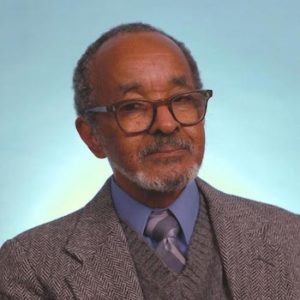
Emmett Chappelle
Emmett W. Chappelle, a Black scientist, was born on this date in 1925.
He was born in Phoenix, AZ. In 1950 he received a Bachelor of Science from the University of California. From 1950 to 1953, Chappelle was an instructor in Biochemistry at the Meharry Medical College. A year later, he received a Master of Science from the University of Washington. Between 1955 and 1958, Chappelle was a research associate at Stanford University. He was appointed scientist and biochemist for the Research Institute of Advanced Studies at Stanford University, a post he held until 1963.
Between 1963 and 1966, he worked as a biochemist for Hazelton Laboratories, an exo-biologist (1966-1970), and an astrochemist (1970-1973). Chappelle also was a biochemist for the Research Center for Space Exploration division.
In 1977, he began working with Goddard Space Flight Center as a Remote Sensing Scientist. Chappelle is a member of the American Chemical Society, the American Society of Biochemistry and Molecular Biology, the American Society of Photobiology, the American Society of Microbiology, and the American Society of Black Chemists.
Among Chappelle's discoveries was a method (developed with Grace Picciolo) of instantly detecting bacteria in water, which led to improved diagnoses of urinary tract infections. Throughout his career, Emmett Chappelle mentored talented minority high school and college students in his laboratories.
Chappelle retired from NASA in 2001 at the age of 76. He died in Baltimore, Maryland, on October 14, 2019, at 93. In 2007, he was a National Inventor’s Hall of Fame Inductee.
American Men and Women and Science. 15th edition
(New York: McGraw-Hill)
Blacks in Science and Education.
Vivian O. Sammons.
(Washington, D.C.: Hemisphere Publishers), 1989.